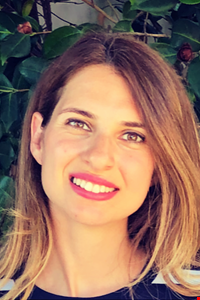
Dr Billur Ozgul
Senior Lecturer in Political Communications
Marie Johoda 213
- Email: billur.ozgul@brunel.ac.uk
- Tel: +44 (0)1895 267943
- Social Science and Communications
- Social and Political Sciences
- College of Arts, Law and Social Sciences
Research area(s)
- Comparative Analysis of Alternative Media Organisations
- Comparative Political Analysis of Digitally Mediated Movements
- The Role of ICTs and Emotions in Periods of Protests
- Social, Political and Cultural Impact of ICTs
Research grants and projects
Research Projects
Grants
Funder: Brunel University
Duration: August 2023 - August 2024
Since the Syrian conflict started in 2011, the world has been witnessing one of the worst “refugee crises”. According to UNHCR (2021), 82.4 million refugees were displaced at the end of 2020. The so-called crisis prompted a rise, visibility and mainstreaming of racism at an alarming level on social media in hosting countries. This is particularly true of Turkey, which has been the primary destination for the refugees and a key transition point for those who want to cross into EU. As of 2021, there are over 4 million refugees and asylum seekers in Turkey (World bank group, 2021). Such a sudden increase in refugee numbers has critical implications for the host society and for refugees. While refugees struggle to survive, their plight attracts growing media coverage leading to increasing anti-immigrant sentiment and growing attacks towards refugees’ homes and businesses (Yackley, 2021). Media has a special role for social acceptance and maintaining the conflicts at a very minimal level. How media represents the crisis affect audiences' interpretations and responses to the refugees (Aliefendioglu, 2018 and Narli et al., 2019). Based on this background, this project aims to 1) examine the frames used by both alternative and mainstream media journalists in Turkey while covering the refugees, and 2) explore the different factors behind the way journalists select their news. Hence, the project also provides a unique opportunity in understanding the external and internal factors behind journalists’ behaviours.
Funder: The British Academy
Duration: October 2021 - March 2022
Funded by the British Academy, this report is part of a research project entitled “Mapping and visualising intersections of social inequalities, community mistrust, and vaccine hesitancy in online and physical spaces in the UK and US”. The report investigates social, cultural, and political factors underlying vaccine hesitant beliefs and ideas amongst minoritised communities in the United Kingdom (UK) and the United States of America (US). The data is collected through interviews and focus groups with vaccine-hesitant individuals within various religiously, ethnically, and racially minoritised communities, interviews with medical practitioners, and through thematic analysis of vaccine communication in Twitter and Telegram during the COVID-19 pandemic. B
Project details
I have recently completed a multilingual and international research project commissioned by the British Council and Open University where I and seven other researchers explored global audience reactions to a cultural diplomacy campaign of the British Council. For further information please see: https://www.brunel.ac.uk/research/Projects/Project?id=bd82a3fb-e8a0-41b1-b959-2d57067f44bc&language=en-GB
Presently, I am working on two collaborative projects. My "alternative media" project with Anastasia Veneti analyses and compares the organisational structures of alternative media projects in Turkey and Greece; two countries that have recently witnessed networked social movements. Drawing on in-depth interviews with journalists working in six alternative media projects, we inform on the news production process, the news values, and normative ideals adopted by these journalists while covering the news and explore if they make use of similar or different organisational structures. We invite a rethinking of alternative media to focus on their unique features and the differing experiences and values of their journalists.
I have also recently joined the “Crises in Digital Spaces” project that also includes Ozge Ozduzen, Nelli Ferenczi, and Bogdan Ionasev. The project addresses nuances in citizens’ anti-lockdown hashtag use during the Covid-19 crisis period and studies the motivations, political emotions, and cognitions of different types of mobilisations against lockdowns.
